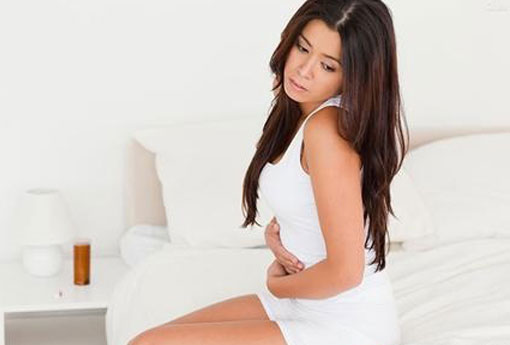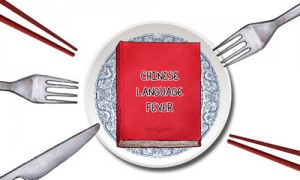Basic Information
Chinese name: menstrual period
Pinyin: jīng qī
Foreign name: menstrual period
Explanation: The menstrual cycle
Fundamental contents
① Refers to the menstrual cycle. A normal menstrual cycle is generally about 28 days. However, due to differences in constitution, age, climate, region and living conditions, the menstrual cycle will also vary. Within the range of 7 days before and after 28 days, it is within the normal range.
② refers to the duration of a menstrual period. Usually 3-7 days. If the duration is prolonged or too short, it is all morbid.
Premenstrual performance
Some women have a series of mental and physical symptoms such as mental depression, anxiety, irritability, insomnia, breast distention and pain, abdominal distension and constipation, which affect their daily life and normal study and work. Premenstrual syndrome.
PMS is most common in women of childbearing age between the ages of 30 and 40. The typical premenstrual syndrome begins a week before menstruation, the symptoms gradually worsen, and it is most severe 2 to 3 days before menstruation, and disappears suddenly after menstruation. In some patients, symptoms persist for a long time, lasting until 3 to 4 days after menstruation begins to completely disappear.
Physiological performance
duration
Related books Menstrual cycle Menstrual cycle Menstrual cramps Clinical private complaints of irregular menstruation vary from person to person.
The duration of menstrual cramps is generally 3-7 days, and the bleeding volume is within 100 ml, with the 2-3rd day being the most. Menstrual blood is generally dark red and does not coagulate. In addition to blood, it also contains endometrial fragments, cervical mucus and vaginal epithelial cells. Generally, women are asymptomatic during menstruation. A few people may experience discomfort in the lower abdomen or lumbosacral region, breast tenderness, constipation or diarrhea, headache and other discomforts, which generally do not affect their daily work, study and life.
type of reaction
Fear of cold
When the menstrual period comes, the abdomen will feel cold, the menstrual pain is severe, and the cold will be more serious, but it will feel more comfortable to keep warm.
The menstrual period is usually late, and the menstrual period often lasts for more than seven days. The menstrual blood is dark red, and there will be blood clots mixed with the color of pig liver. Especially afraid of cold, the probability of concurrent weakness is very high.
Tips for improvement: To keep warm, you can wear thick underwear or thick socks. Don't wear skirts, because if the lower body is cold, menstrual pain will be worse. Warm food is recommended. You can usually take a bath or soak your feet to drive away the cold. It is recommended to drink ginger tea and cinnamon tea.
Anemia
It is easy to get dizzy, the eyes will have gold stars when I stand up, the skin feels rough and dry, the spirit is not concentrated, and I am always forgetful. Menstrual period abdominal discomfort, but also back pain and various discomfort symptoms. The color of menstrual blood is pink or light red, the blood is very thin, and the menstrual period is very short. Late menstruation is very serious, often dragging on for more than 40 days. Even though my period is over, I still feel weak all over.
Tips for improvement: Don’t use your eyes or your brain too much, get enough sleep, and pay attention to replenishing blood in your daily diet and life. Go to bed before twelve o'clock every night, if you can't sleep, you can drink a cup of hot milk. You can eat animal liver or other blood-enriching food. It is recommended to drink jujube tea or wolfberry tea, Chinese medicine can be used angelica and longan.
Weak
Before the menstrual period, the feet will be swollen, easily fatigued, and have back pain, less appetite, and easy to catch colds or diarrhea. There is almost no menstrual pain, the menstrual blood is light red, sometimes the amount is large and sometimes the amount is small, which is polarized. Short menstruation, if complicated with anemia, menstruation is easy to be late. Poor metabolism, severe edema, especially the lower body is obese.
Tips for improvement: three meals a day should not be missed, and eat more food that is well-digested and nutritionally balanced. You must eat breakfast, because the stomach is not good, you must chew slowly when you eat. Not suitable for intense exercise, if you want to exercise, it is best to take a walk after dinner. It is recommended to drink Eucommia tea and Korean ginseng tea. Chinese medicine can use lotus seeds and astragalus.
Too much pressure
Before menstruation, mental instability, emotional anxiety, easy to lose temper. The two phenomena of bulimia and anorexia keep repeating. If you gas or burp, you will get acne, either constipation or diarrhea. The symptoms of each menstrual pain are different and will change with the physical condition at the time. There will be abdominal bloating or abdominal pain before the menstrual period, but these symptoms will disappear once the menstrual period begins. Menstrual blood is generally red and is normal for four to five days. Sometimes early, sometimes late.
Tips for improvement: You need to learn to control your emotions, and your daily routine should be normal. You can listen to music or drink herbal tea to soothe your emotions during menstruation. Eat more oranges or drink tea, usually put some green plants in the room, do some simple stretching exercises after getting up, and take a walk if you have time. It is recommended to drink jasmine tea and mint tea, and traditional Chinese medicine can try mint and dried tangerine peel.
poor blood flow
Before menstruation, you will feel bloated, lower abdomen protrudes, and constipation will occur once menstruation. Menstrual blood is dull in color, feels sticky, and sometimes comes out with blood clots the color of pig liver. There is a lot of menstrual blood, and the first day is relatively small, but the second and third days suddenly increase, and the menstrual period will last more than 7 days.
Tips for improvement: People with poor blood circulation should exercise more, be careful not to catch cold, and do not eat cold food. Better not to use tampons. Eat more black, red, and purple foods, and vegetables are best heated. Avoid sitting for long periods of time and walk more to get better blood circulation in your pelvis. You can drink some turmeric tea or traditional Chinese medicine rose, safflower, hawthorn tea.
mental performance
Formation mechanism
Many women are known to experience mood swings during their menstrual cycle, especially before and during menstrual periods, with very low mood, depression, or short tempers. During the menstrual cycle, both sex hormones and pituitary gonadotropins will undergo a series of changes, which will affect women's psychological activities and behaviors through certain neural mechanisms, causing some emotional changes.
biological perspective
From a biological standpoint, it is clear that there are fluctuations in sex hormones inherent in the menstrual cycle. Depression is common in premenstrual, menopausal, postpartum, and contraceptive women. It seems that there must be some connection between sex hormones and depression.
cultural accomplishment
Due to the long-term influence of traditional customs, women believe that anxiety must occur before menstruation. this is the result of cultural oppression of women. They always expect anxiety and depression in the premenstrual period. Experimental studies have provided similar evidence: Telling women who expect to have their period in a week's time allows doctors to use a new set of instruments to pinpoint the exact date of their next menstrual period. The subjects were divided into 3 groups, group 1: told them that their period would happen 1-2 days later; group 2: told them to have their period at least 7-10 days later; group 3: told nothing. Then ask them to report a series of questions about their premenstrual period. The results showed that the occurrence of premenstrual edema, breast swelling, headache and other symptoms in the first group was significantly more than that in the second group.
hormone levels
For example, the psychological development of women with dysmenorrhea may be immature, showing a neurotic character. 70-80% of patients with functional uterine bleeding have mood disorders and sexual life problems. This is because tension will promote abnormal activity of the autonomic nervous system, which will cause vascular changes and massive bleeding.
mitigation
1. Do more aerobic exercise. A variety of aerobic fitness activities can reduce or even eliminate symptoms, and women who plan to exercise have reduced amenorrhea, depression, and anxiety.
2. Take supplements appropriately. Vitamin B6 and calcium and magnesium supplements can improve symptoms such as depression, irritability, headache, abdominal distension, etc. However, excessive consumption of supplements is harmful to the body, so they should be taken according to the doctor's advice.
3. Reduce psychological stress. When women are stressed, they are more likely to respond to normal hormonal changes with physical symptoms and emotional changes. Women who receive systematic relaxation and meditation training can greatly reduce their symptoms of premenstrual dysphoria.
4. Eat more carbohydrate foods. Carbohydrate foods can increase brain serotonin levels and reduce adverse emotional reactions. Women with premenstrual irritability should eat foods that are high in sugar and low in fat. Such as whole grains, fruits, vegetables, etc. Carbohydrates help to improve anxiety, tension, depression and other negative emotions, of which whole grains have the most obvious effect. Try to avoid fast food and snacks that are high in salt.
5, eat less food containing caffeine. Coffee, tea, chocolate, and certain foods containing soda all contain caffeine, which has been linked to some premenstrual symptoms. The lower the caffeine intake, the less premenstrual symptoms. Therefore, women should try to eat less of these foods during the menstrual period.
6, quit drinking stimulant drinks. Caffeine can make mood irritable, restless, and can make breast tenderness worse in some women. Alcohol can also make the condition worse. Therefore, for women with premenstrual irritability, these stimulant drinks should be banned within a week before menstruation.
conditioning food
From the perspective of traditional Chinese medicine, to regulate the negative emotions of women in the premenstrual period and menopause, we should start with soothing the liver, strengthening the spleen and regulating qi. Here are some recommended home-cooked foods:
Lotus root: Lotus root can ventilate, but also can strengthen the spleen and stomach, nourish the heart and soothe the nerves, and it is also a good product for smoothing the qi. Boil lotus root or lotus root porridge with water is the best.
Radish: long for smoothing Qi and invigorating the stomach, clearing away heat and eliminating phlegm. The curative effect of green radish is the best, followed by those with red skin and white heart, such as women with cold stomach, you can add spare ribs, beef and other stewed radish soup to eat.
Hawthorn: It is good at smoothing Qi and promoting blood circulation, dissolving food and eliminating accumulation, and can also lose weight and eliminate cellulite. Whether it is eaten raw, cooked or soaked in water, all kinds of eating methods are effective. However, it should be eaten in moderation, and women with hyperacidity should use it with caution.
Roses: Roses have the effect of soothing the liver and regulating qi, calming the mind and soothing the mind. Putting a few roses in tea is not a good idea.
But it has a smooth effect and is very pleasing to the eye.
Fennel: Fennel fruit is used for medicinal purposes, called cumin, and the young leaves are edible. Both the seeds and leaves have the effect of smoothing Qi, and using the leaves to make vegetable stuffing or stir-fry food can play the effect of smoothing the Qi, strengthening the stomach and relieving pain.
Citrus: Citrus not only tastes sweet, but also has the power to expand the chest. In addition to the pulp, the tangerine collaterals also have certain medicinal value.
Female friends can choose to eat according to their actual situation.
health
Hygiene matters needing attention according to the physiological characteristics of menstruation. Menstruation is a physiological phenomenon, but due to endocrine effects, various changes in body functions occur during menstruation, resulting in reduced systemic and local resistance. If you do not pay attention to hygiene, it is often easy to cause acute and chronic diseases, and even affect women's health and fertility. Therefore, during the menstrual period, we should pay attention to: ① Avoid infection. During the menstrual period, due to the influence of sex hormones, the pelvic organs are congested; the endometrium falls off, forming wounds; the cervix is relaxed; the acidity in the vagina is also reduced by the flushing of menstrual blood, and the natural defense effect of inhibiting bacterial reproduction is lost. To prevent bacterial ascending infection, the vulva should be cleaned daily. To change frequently, wash trousers frequently, dry. Wash with soft, absorbent sanitary napkins to avoid scratching your skin. Swimming, bathing, vaginal tamponade and sexual intercourse are prohibited.
Prevent inflammation of the reproductive tract. ② Avoid excessive fatigue. During menstruation, you can participate in activities as usual, but because the body is prone to fatigue and the resistance is reduced at this time, it is necessary to avoid mental and physical fatigue, and it is not suitable to do strenuous exercise or heavy physical labor to prevent increased menstrual flow or prolonged menstruation. ③ Avoid wet and cold. Too cold (especially cold water) can easily cause ovarian dysfunction and lead to menstrual disorders. Therefore, try to avoid cold stimulation during menstruation, especially to prevent the lower body from getting cold, such as paddy fields, rain, cold feet, cold baths, sitting on cool ground, etc. ④ Avoid mood swings. The menstrual cycle is closely related to the neuropsychiatric activity. When the function of the central nervous system is disordered, the menstruation will also be disordered. Therefore, the menstrual period should be kept as pleasant as possible, and excessive sadness and anger should be avoided. ⑤ Avoid stimulating food. Constipation is prone to occur during menstruation, and constipation can cause pelvic congestion. Therefore, you should drink plenty of water, eat fresh and digestible food, and keep your bowel movements smooth. ⑥Strive for conditions to establish a menstrual card to facilitate early detection of pregnancy, miscarriage and menstrual disorders, which is also one of the effective measures for family planning and prevention and treatment of women's diseases.
menstrual disease
Menstrual rash: refers to the rash that occurs during the menstrual cycle.
Related Books Generally speaking, the rash occurs 1 to 3 days before menstruation, and subsides within 1 to 2 days after menstruation ends. The rash occurs mainly on the skin of the face, trunk, and extremities, and the lesions manifest as red herpes, urticaria, purpura, periorbital pigmentation, and sometimes ulcers on the oral and vaginal mucosa. Individual patients will also appear systemic herpes menstrual rash, and the condition is serious, often accompanied by symptoms such as high fever and general malaise. It not only affects the girl's appearance, eating and walking, but also affects her work, study, life and physical and mental health.
Menstrual rash is actually an allergic reaction, which is caused by the sudden increase in the level of progesterone secreted by the ovaries before menstruation, which makes the body allergic.
Menstrual anemia: In recent years, many adolescents have been found to suffer from anemia, especially among girls.
Menstrual edema: Because estrogen has the physiological effect of retaining sodium and water, when the level of estrogen increases in the premenstrual period, edema of the eyelids, fingers, ankles, etc. will appear. . The urine output increased after the cramps, and the edema gradually decreased. Diuretics can be taken if necessary. .
Menstrual cramps: Some girls have little or no vaginal bleeding when they menstruate, but often have periodic epistaxis or vomit blood, which may be caused by disturbances in their circadian rhythms. There is a rich and fragile area in the front and lower part of the nasal septum, which is very sensitive to estrogen. During menstruation, the blood vessels of the nasal mucosa proliferate, swell and rupture and bleed.
Blood in the stool: When the ovarian function is low or disordered, the normal physiological function is disturbed, which will inevitably lead to disordered menstruation, and the menstrual blood will come out from the anus in the opposite way. It may involve central nervous system dysfunction caused by tension, anxiety, etc. Therefore, in order to avoid the above-mentioned diseases, you must always take care of yourself. In addition, you should also pay attention to some small details in your life during menstruation, such as try not to wash your hair during menstruation: you must dry your hair immediately after washing. Shampoo at noon during menstruation. It is important to get enough rest during your menstrual period, as over exertion can lead to prolonged periods or excessive blood loss.
Do not beat the waist during menstruation: When the waist is sore and the legs are swollen, we relieve the discomfort by beating the sore muscles. Similarly, many women habitually beat the waist during menstruation to relieve the soreness of the waist. But doing so was a mistake. Gynecological experts pointed out that the soreness of the waist during menstruation is caused by pelvic congestion. At this time, beating the waist will cause the pelvic cavity to become more congested, which will aggravate the soreness. In addition, beating the waist during menstruation is not conducive to the repair and healing of the wound after endometrial peeling, resulting in increased bleeding and prolonged menstruation.
Menstrual headaches: Studies have shown that 70% of migraine headaches occur before and after menstruation in women. Some experts point out that menstrual headaches are associated with changes in serum levels of estradiol, a female hormone. Before and after menstruation, the concentration of estradiol in serum decreases, which causes changes in vascular tone and causes headaches in some sensitive patients. After menstruation, the serum estradiol concentration returns to normal, and the patient's headache can be relieved or disappeared. In addition, clinically common menstrual headaches are often closely related to endocrine disorders. Stressful life and work pressure, mental fatigue, lack of exercise, lack of sleep, and even some women do not eat for a long time because of weight loss. These bad habits may lead to endocrine disorders, which in turn lead to premenstrual syndrome. From the perspective of traditional Chinese medicine, menstrual headache can be called menstrual headache. It is caused by long-term poor living habits or emotional instability. It will lead to long-term accumulation of toxins in the body, and toxins enter the blood vessels, causing blood vessels to dilate, resulting in headaches. Menstrual headaches can be relieved in several ways:
1. Outdoor walking: It can regulate emotions and reduce stress.
2. Massage: Combing the scalp with a pointed comb can improve the blood supply to the brain.
3. Hot compress: Soak your hands in a pot of hot water and apply a hot towel to your head for 30 minutes each time.
4. Drink sweet drinks: Sugar can quickly increase the blood sugar content of the human body, and drinking water can increase the blood volume of the body and improve the ischemia of the brain. Therefore, when you are in pain, giving yourself a glass of sweet milk or juice can help relieve migraine headaches caused by cerebral vasodilation and compression of nerves.








